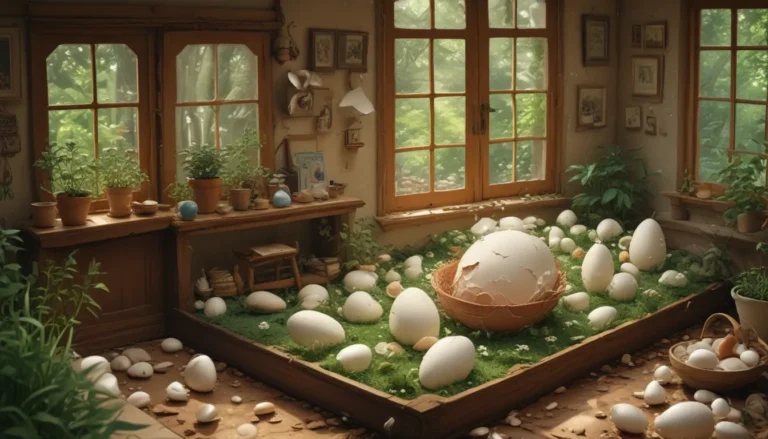Keeping Rabbits Out of Your Garden: A Comprehensive Guide

Are you tired of finding your flower seedlings eaten overnight by rabbits or discovering your bush beans devoured within a day of sprouting? If you’re nodding your head in frustration, then you’re in the right place.
Rabbit damage to your garden can be both disheartening and discouraging. But fear not, there are effective solutions that don’t involve resorting to hunting these cute little pests. In this article, we will delve into the world of rabbit behavior, explore practical strategies to protect your plants, and discuss ways to deter these furry intruders without the need for violence.
So grab a cup of tea, sit back, and let’s dive into how you can keep rabbits out of your garden.
What You’ll Learn
Here’s a sneak peek at what you can expect to learn in this article:
- Is That Really Rabbit Damage?
- Don’t Shoot!
- Why Raised Beds Work
- Fence Them Out
- Landscape and Tidy Up to Discourage Rabbits
- Grow Plants They Don’t Like
- Use Scents Against Them
Is That Really Rabbit Damage?
Before jumping to conclusions and blaming rabbits for the damage in your garden, it’s essential to understand the unique feeding habits of these furry critters.
While slugs and snails are notorious for leaving ragged bites and holes in plants, rabbits exhibit a more precise form of damage. They usually cut through the main stem of a seedling, leaving behind clean cuts that resemble scissor marks. Additionally, rabbits may gnaw at the bark of young trees, leaving distinct marks that differentiate them from other pests like deer.
If you find nothing but nubs or small rounded droppings around your damaged plants, it’s highly likely that rabbits are the culprits.
Don’t Shoot!
Although the thought of eliminating rabbits with firearms might cross your mind, it’s not a recommended approach due to various reasons. Shooting rabbits can lead to legal issues, harm other wildlife, and potentially disturb your neighbors. Moreover, the reproductive capabilities of rabbits make it challenging to control their population through hunting.
Instead of resorting to violent methods, focus on prevention strategies that are humane and effective in the long run.
Why Raised Beds Work
Rabbits, despite their jumping abilities, have limitations when it comes to height. By incorporating raised bed gardens with sides at least two feet tall, you create a barrier that rabbits find challenging to overcome. For larger gardens or landscape plants, other tactics such as fencing can be utilized to protect your precious plants.
Fence Them Out
If raised beds are not feasible for your garden, consider installing fencing with a height of about 26 inches to deter rabbits. Ensure that the mesh or fence openings are no wider than a couple of inches to prevent them from squeezing through. Additionally, burying the fence at least 10 inches below the soil can prevent rabbits from burrowing underneath.
By creating physical barriers, you can safeguard your plants from rabbit intrusion effectively.
Landscape and Tidy Up to Discourage Rabbits
Creating a less inviting environment for rabbits is key to deterring them from your garden. Remove potential hiding spots like brush piles and weedy patches to make your yard less appealing. Additionally, designate alternative areas with rabbit-friendly plants to redirect their attention away from your prized garden.
By implementing these landscaping strategies, you can encourage rabbits to settle in locations that are far from your vulnerable plants.
Grow Plants They Don’t Like
One effective way to protect your garden from rabbit damage is by selecting plants that rabbits tend to avoid. By incorporating rabbit-resistant flowers and vegetables such as Mexican marigolds, lavender, and onions, you can minimize the risk of your plants being devoured.
Strategically planting rabbit-resistant species in your garden can help create a natural deterrent against these hungry critters.
Use Scents Against Them
Harnessing the power of scents can act as a natural repellent against rabbits. Sprinkling bone meal around your plants or allowing your dog to roam near the garden can discourage rabbits from approaching. While some myths suggest using mothballs, it’s important to avoid these as they contain harmful chemicals that can pose risks to plants and wildlife.
By utilizing scents strategically, you can create a protective barrier around your plants without resorting to harmful substances.
Conclusion
In conclusion, keeping rabbits out of your garden requires a combination of preventative strategies, landscaping techniques, and plant selection. By understanding rabbit behavior and implementing practical solutions such as raised beds, fencing, and scent deterrents, you can create a harmonious garden environment free from rabbit damage.
Remember, the goal is to coexist with wildlife while safeguarding your garden’s integrity. By following the tips outlined in this article, you can embark on a rabbit-free gardening journey filled with flourishing plants and bountiful harvests.
Have you discovered your own effective methods for deterring rabbits from your garden? Share your insights in the comments below. Let’s create a community of gardeners dedicated to protecting our plants from furry invaders while promoting a harmonious balance with nature.
If you enjoyed these tips for dealing with rabbits in your garden, be sure to check out our other guides on attracting backyard birds, butterflies, and installing a deer fence to keep wildlife at bay.
Happy gardening, and may your plants thrive free from rabbit interference!





